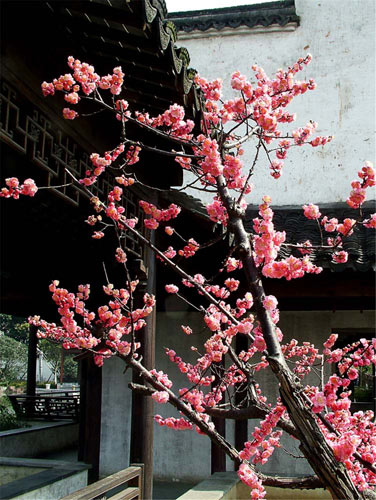 |
|
A peach tree blooms in the yard of an ancient ancestral temple in Huishan. |
Xu Jiacai said he once witnessed the whole scene of a prodigal son of a family member who was tied to a tree in the courtyard of the temple and beaten by seniors as punishment for his actions.
Huge swaths of farmland around the temple were also rented to tenants. The rent was enough to maintain the temple and family members did not need to donate money often for its upkeep.
Renovation work
After the founding of the People's Republic of China in 1949, two-thirds of the family temple's structures were taken up by a local hospital before being demolished to make way for new buildings.
In 2008, a rare blizzard hit a vast part of the area and affected the site badly. Xu Chun and several other clan members realized they had to repair their temple as soon as possible.
"We knew that we needed a lot of money to repair it," Xu Chun said.
He was initially not sure if they could get enough support for the repairs. Many local residents had moved to the city and beyond because of rapid urbanization.
To Xu Chun's surprise, hundreds of clan members pledged their support, together donating about 450,000 yuan ($69,100). Renovation work started at the end of 2008.
Some members also took part in the renovation work themselves, working for free.
"The ancestors will see what we have done for them, and they will bless us in heaven," Xu Jiacai said.
Traditionally, when a family member died, a tablet that embodies his or her spirit will be made and placed in the temple. The ancestral tablets are typically arranged according to seniority.
In the Xu ancestral hall, the tablet of the most senior ancestor belongs to the one who first started living in Leima.
